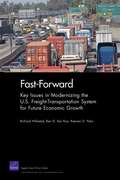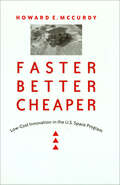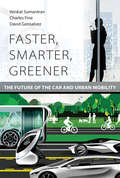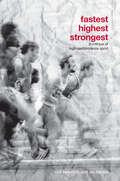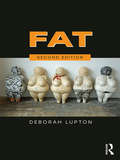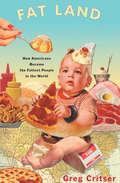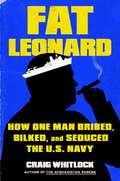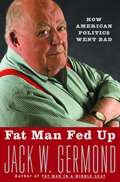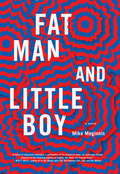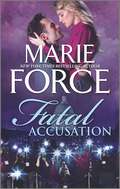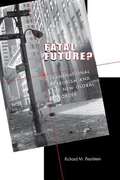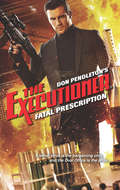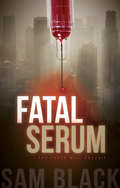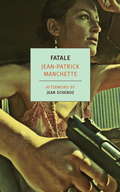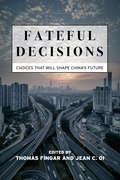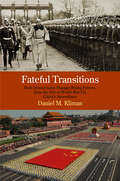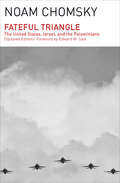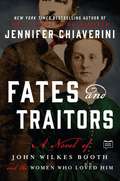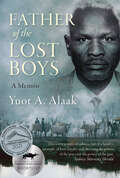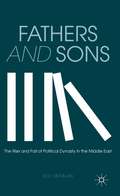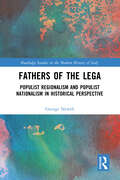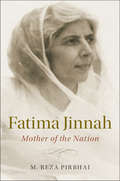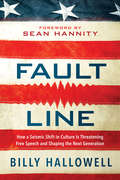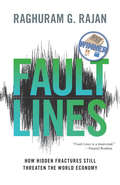- Table View
- List View
Fast-Forward
by Ben D. Van Roo Keenan D. Yoho Richard HillestadEfficient movement of freight within the United States and across its borders is a critical enabler of future U.S. economic growth. The authors provide an overview of the freight-transportation system and the problems it faces, concluding with a discussion of key system-modernization issues, including increasing capacity, making the system less vulnerable to disruption, addressing environmental concerns, and building support for funding.
Faster, Better, Cheaper: Low-Cost Innovation in the U.S. Space Program (New Series in NASA History)
by Howard E. McCurdyIn Faster, Better, Cheaper: Low-Cost Innovation in the U.S. Space Program, Howard E. McCurdy examines NASA's recent efforts to save money while improving mission frequency and performance. McCurdy details the sixteen missions undertaken during the 1990s—including an orbit of the moon, deployment of three space telescopes, four Earth-orbiting satellites, two rendezvous with comets and asteroids, and a test of an ion propulsion engine—which cost less than the sum traditionally spent on a single, conventionally planned planetary mission. He shows how these missions employed smaller spacecraft and cheaper technology to undertake less complex and more specific tasks in outer space. While the technological innovation and space exploration approach that McCurdy describes is still controversial, the historical perspective on its disappointments and triumphs points to ways of developing "faster, better, and cheaper" as a management manifesto.
Faster, Smarter, Greener: The Future of the Car and Urban Mobility (The\mit Press Ser.)
by Venkat Sumantran Charles Fine David GonsalvezA call to redefine mobility so that it is connected, heterogeneous, intelligent, and personalized, as well as sustainable, adaptable, and city-friendly.The twentieth century was the century of the automobile; the twenty-first will see mobility dramatically re-envisioned. Automobiles altered cityscapes, boosted economies, and made personal mobility efficient and convenient for many. We had a century-long love affair with the car. But today, people are more attached to their smartphones than their cars. Cars are not always the quickest mode of travel in cities; and emissions from the rapidly growing number of cars threaten the planet. This book, by three experts from industry and academia, envisions a new world of mobility that is connected, heterogeneous, intelligent, and personalized (the CHIP architecture).The authors describe the changes that are coming. City administrators are shifting from designing cities for cars to designing cities for people. Nations and cities will increasingly employ targeted user fees and offer subsidies to nudge consumers toward more sustainable modes. The sharing economy is coaxing many consumers to shift from being owners of assets to being users of services. The auto industry is responding with connected cars that double as virtual travel assistants and by introducing autonomous driving.The CHIP architecture embodies an integrated, multimode mobility system that builds on ubiquitous connectivity, electrified and autonomous vehicles, and a marketplace open to innovation and entrepreneurship. Consumers will exercise choice on the basis of user experience and efficiency, aided by “intelligent advisors,” accessible through their mobile devices.An innovative mobility architecture reconfigured for this century is a social and economic necessity; this book charts a course for achieving it.
Fastest, Highest, Strongest: A Critique of High-Performance Sport (Routledge Critical Studies in Sport)
by Rob Beamish Ian RitchieFastest, Highest, Strongest presents a comprehensive challenge to the dominant orthodoxy concerning the use of performance-enhancing drugs in sport. Examining the political and economic transformation of the Olympic Movement during the twentieth century, the authors argue that the realities of modern sport require a serious reassessment of current policies, in particular the ban on the use of certain substances and practices. The book includes detailed discussion of: * The historical importance of World War II and the Cold War in the development of a high-performance culture in sport * The changing Olympic project: from amateurism to a fully professionalized approach * The changing meaning of "sport" * The role of sport science, technology and drugs in pursuing ever-better performance * The major ethical and philosophical arguments used to support the ban on performance-enhancing substances in sport. Fastest, Highest, Strongest is a profound critical examination of modern sport. Its straightforward style will appeal to under- and post-graduate students as well as scholars of sports ethics and history, policy makers and all those interested in the changing nature of sport.
Fat
by Deborah LuptonIn contemporary western societies, the fat body has become a focus of stigmatizing discourses and practices aimed at disciplining, regulating and containing it. Despite the fact that in many western countries fat bodies outnumber those that are thin, fat people are still socially marginalized, and treated with derision and even repulsion and disgust. Medical and public health experts continue to insist that an ‘obesity epidemic’ exists and that fatness is a pathological condition which should be prevented and controlled. Fat is a book about why the fat body has become so reviled and reviewed as diseased, the target of such intense discussion and debate about ways to reduce its size down to socially and medically acceptable dimensions. It is about the lived experience of fat embodiment: how does it feel to be fat in a fat phobic-society? Fat activism and obesity politics, and related controversies, are also discussed. Internationally-renowned sociologist Deborah Lupton explores fat as a sociocultural artefact: a bodily substance or body shape that is given meaning by complex and shifting systems of ideas, practices, emotions, material objects and interpersonal relationships. This analysis identifies broader preoccupations and trends in the ways that human bodies and selfhood are experienced and practised. The second and much expanded edition of Fat is twice as long as the original edition. Lupton incorporates the very latest current critical scholarship and research offered in the humanities and social sciences on fat embodiment and fat politics. New updated material is presented in every chapter, including substantial additional sections on new digital media. Fat is a lively, at times provocative introduction for the general reader, as well as for students and academics interested in the politics of embodiment and health.
Fat Land: How Americans Became the Fattest People in the World
by Greg Critser&“An in-depth, well-researched, and thoughtful exploration of the &‘fat boom&’ in America.&” —TheBoston Globe Low carb, high protein, raw foods . . . despite our seemingly endless obsession with fad diets, the startling truth is that six out of ten Americans are overweight or obese. In Fat Land, award-winning nutrition and health journalist Greg Critser examines the facts and societal factors behind the sensational headlines, taking on everything from supersize to Super Mario, high-fructose corn syrup to the high costs of physical education. With a sharp eye and even sharper tongue, Critser examines why pediatricians are now treating conditions rarely seen in children before; why type 2 diabetes is on the rise; the personal struggles of those with weight problems—especially among the poor—and how agribusiness has altered our waistlines. Praised by the New York Times as &“absorbing&” and by Newsday as &“riveting,&” this disarmingly funny, yet truly alarming, exposé stands as an important examination of one of the most pressing medical and social issues in the United States. &“One scary book and a good companion to Eric Schlosser&’s Fast Food Nation.&” —Seattle Post-Intelligencer
Fat Leonard: How One Man Bribed, Bilked, and Seduced the U.S. Navy
by Craig WhitlockWinner of the 2024 Investigative Reporters and Editors Book Award Winner of the 2024 Commodore John Barry Award for Excellence in Maritime Literature #1 New York Times bestselling author Craig Whitlock&’s &“masterly investigation into one of the Navy&’s worst scandals&” (The New York Times).All the admirals in the US Navy knew Leonard Glenn Francis—either personally or by his legendary reputation. He was the larger-than-life defense contractor who greeted them on the pier whenever they visited ports in Asia, ready to show them a good time after weeks at sea while his company resupplied their ships and submarines. He was famed throughout the fleet for the gluttonous parties he hosted for officers: $1,000-per-person dinners at Asia&’s swankiest restaurants, featuring unlimited Dom Pérignon, Cuban cigars, and sexy young women. On the surface, with his flawless American accent, he seemed like a true friend of the Navy. What the brass didn&’t realize, until far too late, was that Francis had seduced them by exploiting their entitlement and hubris. While he was bribing them with gifts, lavish meals, and booze-fueled orgies, he was making himself obscenely wealthy by bilking American taxpayers. Worse, he was stealing military secrets from under the admirals&’ noses and compromising national security. Based on reams of confidential documents—including the blackmail files that Francis kept on Navy officers—Fat Leonard is the full, unvarnished story of a world-class con man and a captivating testament to the corrosive influence of greed within the ranks of the American military.
Fat Man Fed Up: How American Politics Went Bad
by Jack W. GermondFor more than forty years, Jack Germond has been covering politics for Gannett newspapers, the Washington Star, and the Baltimore Sun, and talking politics on the Today show, The McLaughlin Group, and Inside Washington. Now, in Fat Man Fed Up, Germond confronts the most critical issues raised by our election process and offers a scathing but wry polemic about what's wrong with American politics.
Fat Man and Little Boy
by Mike MeginnisTwo bombs over Japan. Two shells. One called Little Boy, one called Fat Man. Three days apart. The one implicit in the other. Brothers.Named one of Flavorwire's best independent books of 2014, and winner of the 2013 Horatio Nelson Fiction Prize.<P><P>In this striking debut novel, the atomic bombs dropped on Japan are personified as Fat Man and Little Boy. This small measure of humanity is a cruelty the bombs must suffer. Given life from death, the brothers' journey is one of surreal and unsettling discovery, transforming these symbols of mass destruction into beacons of longing and hope."Impressive. . . The novel straddles a hybrid genre of historical magical realism." - The Japan Times"Meginnis's talent is his ability to make the reader feel empathy for souls who killed so many. . . Many pages in this novel feel like engravings . . . Meginnis has written one of the best, most natural novels about the atomic bombs." - Nick Ripatrazone, The Millions"[An] imaginative debut. . . Meginnis' story is both surprising and incisive." - Publishers WeeklyNamed one of "the year's most impressive debut novelists" by the 2014 Brooklyn Book Festival"An imaginative and surprisingly intimate look at the consequences of our actions and the costs of war." - Library Journal"In his inventive and fabulist debut novel Fat Man and Little Boy Mike Meginnis lends a surprisingly human dimension to the atomic bombs dropped on Japan during World War II." - Largehearted Boy"Throughout Fat Man and Little Boy, Meginnis's language is luminous and disarmingly spare, whether he is invoking a naturalist moment or a fantastical metamorphosis." - Necessary Fiction"Beguiling, strange, and strangely lovely, Fat Man and Little Boy is a deeply sorrowful yet mysteriously empowering debut."-Patrick deWitt, author of The Sisters Brothers"Only someone with the deftness of heart of a writer like Mike Meginnis could redefine the war novel into something like Fat Man and Little Boy, a book which translates our basic world of never-ending terror into a highly nuanced and inventive diorama available absolutely nowhere else."-Blake Butler, author of Scorch Atlas and There is No Year"Mike Meginnis is my favorite kind of writer-extraordinarily inventive, formally curious, profoundly moving-and his Fat Man and Little Boy is a debut of impressive ambition, a reinvention of the historical novel, an existential thriller powered by the booming engines of history, the atom, the human heart." -Matt Bell, author of In the House upon the Dirt between the Lake and the Woods"In Fat Man and Little Boy, Mike Meginnis takes the mother of all atrocities and makes it strange, sizable, turns it so sideways that we're forced to notice, to take heed. This alone is an achievement, but it's the way he does it that dazzles-with gorgeous, careful prose that gives us human failings and a desperate longing for connection so vividly rendered that we have no choice but drink it in, to reckon once again with this disaster in our own time and way."-Amber Sparks, author of The Desert Places and May We Shed These Human Bodies
Fatal Accusation (The Fatal Series)
by Marie ForceA deadly serious affair…The story breaks as Metro PD lieutenant Sam Holland attends a dinner party with her husband, Vice President Nick Cappuano: President Nelson is accused of having an affair. More shocking still, campaign staffer Tara Weber claims the president fathered her newborn son—while the First Lady was undergoing secret cancer treatment.When a high-profile murder case hits Sam’s desk, she’s shocked to uncover a connection to the presidential scandal. With the department caught up in its own internal scandals, and the chief’s job hanging by a thread, Sam questions who she can trust as her team uncovers information that clouds an already-murky case. And with calls for the president to resign getting louder by the minute, Sam needs to close this case before she finds herself living at 1600 Pennsylvania Avenue…
Fatal Future?: Transnational Terrorism and the New Global Disorder
by Richard M. Pearlstein"As the media has zeroed in on the individual victims, heroes, and perpetrators of 9/11, followed the fighting in Afghanistan, and chronicled the 'war against terrorism' at home, there has been a crying need for a short, sober book like this one . . . to] provide a broader context. It shows that 9/11 was not unexpected, if unpredicted. " -- J. Garry Clifford, Professor of Political Science, University of Connecticut The nature and goals of terrorist organizations have changed profoundly since the Cold War standoff among the U. S. , Soviet, and Chinese superpowers gave way to the current "polyplex" global system, in which the old rules of international engagement have been shattered by a new struggle for power among established states, non-state actors, and emerging nations. In this confusing state of global disorder, terrorist organizations that are privately funded and highly flexible have become capable of carrying out incredibly destructive attacks anywhere in the world in support of a wide array of political, religious, and ethnic causes. This groundbreaking book examines the evolution of terrorism in the context of the new global disorder. Richard M. Pearlstein categorizes three generations of terrorist organizations and shows how each arose in response to the global conditions of its time. Focusing extensively on today's transnational (i. e. , privately funded and internationally operating) terrorist organizations, he devotes thorough attention to the two most virulent types: ethnoterrorism and radical Islamic terrorism. He also discusses the terrorist race for weapons of mass destruction and the types of attacks, including cyberterrorism, that are likely to occur incoming years. Pearlstein concludes with a thought-provoking assessment of the many efforts to combat transnational terrorism in the post-September 11 period.
Fatal Prescription
by Don PendletonDeadly Plague There seems to be little connection between the viral devastation of a small African village and the massacre at a drug research facility in Belgium... But Mack Bolan has learned the hard way that appearances can be deceiving. In fact, a wealthy industrialist is about to expand the release of a highly contagious virus out of Africa and into the States, and use the "miracle" antidote as his ticket to the US presidency. It's up to the Executioner to take down the villain's mysterious assassin and stop the pending epidemic...
Fatal Serum: The Truth Will Prevail (Fatal Serum Ser.)
by Sam BlackFrom the author of Avengement comes a gripping thriller of big pharma, government corruption, and a defiant doctor&’s struggle for survival. Ten years ago, doctorate student Sam Abbot created two astounding serums. One could prevent contagious diseases while the other was capable of blocking the harmful effects of air pollution on human lungs. Both could change the world. Shocked to have his miraculous work turned down by big pharma, Sam gets help from a wealthy rogue benefactor to start his own company. But when the drug companies see their profits dropping, they use their influence with a shady US senator to take out the competition. Now, just as Sam is about to go on a well-earned vacation, his wife mysteriously disappears—and Sam is named the prime suspect. Desperate and on the run, Sam must finally confront the powers that have haunted his life if he or his wife are to survive.
Fatale
by Jean Echenoz Donald Nicholson-Smith Jean-Patrick ManchetteWhether you call her a coldhearted grifter or the soul of modern capitalism, there's no question that Aimée is a killer and a more than professional one. Now she's set her eyes on a backwater burg--where, while posing as an innocent (albeit drop-dead gorgeous) newcomer to town, she means to sniff out old grudges and engineer new opportunities, deftly playing different people and different interests against each other the better, as always, to make a killing. But then something snaps: the master manipulator falls prey to a pure and wayward passion. Aimée has become the avenging angel of her own nihilism, exacting the destruction of a whole society of destroyers. An unholy original, Jean-Patrick Manchette transformed the modern detective novel into a weapon of gleeful satire and anarchic fun. In Fatale he mixes equal measures of farce, mayhem, and madness to prepare a rare literary cocktail that packs a devastating punch.
Fateful Decisions: Choices That Will Shape China's Future (Studies of the Walter H. Shorenstein Asia-Pacific Research Center)
by Jean C. Oi Thomas FingarChina's future will be determined by how its leaders manage its myriad interconnected challenges. In Fateful Decisions, leading experts from a wide range of disciplines eschew broad predictions of success or failure in favor of close analyses of today's most critical demographic, economic, social, political, and foreign policy challenges. They expertly outline the options and opportunity costs entailed, providing a cutting-edge analytic framework for understanding the decisions that will determine China's trajectory. Xi Jinping has articulated ambitious goals, such as the Belt and Road Initiative and massive urbanization projects, but few priorities or policies to achieve them. These goals have thrown into relief the crises facing China as the economy slows and the population ages while the demand for and costs of education, healthcare, elder care, and other social benefits are increasing. Global ambitions and a more assertive military also compete for funding and policy priority. These challenges are compounded by the size of China's population, outdated institutions, and the reluctance of powerful elites to make reforms that might threaten their positions, prerogatives, and Communist Party legitimacy. In this volume, individual chapters provide in-depth analyses of key policies relating to these challenges. Contributors illuminate what is at stake, possible choices, and subsequent outcomes. This volume equips readers with everything they need to understand these complex developments in context.
Fateful Ties
by Gordon H. ChangAmericans look to China with fascination and fear, unsure whether it is friend or foe but certain it will play a crucial role in their future. This is nothing new, Gordon Chang says. Fateful Ties draws on literature, art, biography, popular culture, and politics to trace America's long and varied preoccupation with China.
Fateful Transitions: How Democracies Manage Rising Powers, from the Eve of World War I to China's Ascendance (Haney Foundation Series)
by Daniel M. KlimanAs China emerges as a global force in the twenty-first century, questions of how existing great powers will navigate the geopolitical transition loom large. In Fateful Transitions, Daniel M. Kliman revisits historic power shifts to shed light on enduring patterns in international relations, demonstrating that the regime type of ascendant powers greatly influences global interactions.Since the late nineteenth century, the world's major democracies have tended to accommodate or conciliate ascendant democratic states. Certain attributes of democracy, such as a free press and domestic checks and balances, encourage trust during power shifts, whereas closed and autocratic regimes on the ascent tend to produce a cycle of suspicion, competition, and confrontation. Drawing on democratic peace theory and power transition theory, Kliman compares Great Britain's embrace of U.S. ascendancy in the early twentieth century to its confrontational stance toward autocratic Germany and later U.S. mistrust of the Soviet Union. Within this geopolitical context, he evaluates the interactions between China and current great powers, the United States and Japan. Building on this analysis, Kliman offers new insights into the dynamics of power shifts and explores their implications for how today's established and emerging powers can successfully navigate fateful transitions.
Fateful Triangle: The United States, Israel, and the Palestinians (Updated Edition) (South End Press Classics Ser. #Vol. 3)
by Noam Chomsky&“One of the definitive works on the Israeli Palestinian conflict&” from the celebrated New York Times–bestselling author of Hopes and Prospects (Amy Goodman, host of Democracy Now! and author of Breaking the Sound Barrier). From its establishment to the present day, Israel has enjoyed a unique position in the American roster of international friends. In Fateful Triangle, Noam Chomsky explores the character and historical development of this special relationship. The resulting work &“may be the most ambitious book ever attempted on the conflict between Zionism and the Palestinians viewed as centrally involving the United States. It is a dogged exposé of human corruption, greed, and intellectual dishonesty. It is also a great and important book, which must be read by anyone concerned with public affairs&” (Edward W. Said, from the foreword). &“A devastating collection of charges aimed at Israeli and American policies that affect the Palestinian Arabs negatively.&” ―Library Journal &“Brilliant and unscrupulous.&” ―The Observer &“A major, timely and devastating analysis of one of the great tragedies.&” ―The Tribune &“Formidable.&” ―The Jewish Quarterly
Fates and Traitors: A Novel of John Wilkes Booth
by Jennifer Chiaverini"Fates and Traitors is a novel about mothers and sons, brothers and sisters, the line between patriot and traitor, and the lengths we go to for love. A fascinating look at a slice of our country's history, an incisive portrait of obsession, and overall impossible to put down." --Sara Gruen, New York Times bestselling author of At the Water's Edge and Water for ElephantsThe New York Times bestselling author of Mrs. Lincoln's Dressmaker returns with a riveting work of historical fiction following the notorious John Wilkes Booth and the four women who kept his perilous confidence. John Wilkes Booth, the mercurial son of an acclaimed British stage actor and a Covent Garden flower girl, committed one of the most notorious acts in American history--the assassination of President Abraham Lincoln. The subject of more than a century of scholarship, speculation, and even obsession, Booth is often portrayed as a shadowy figure, a violent loner whose single murderous act made him the most hated man in America. Lost to history until now is the story of the four women whom he loved and who loved him in return: Mary Ann, the steadfast matriarch of the Booth family; Asia, his loyal sister and confidante; Lucy Lambert Hale, the senator's daughter who adored Booth yet tragically misunderstood the intensity of his wrath; and Mary Surratt, the Confederate widow entrusted with the secrets of his vengeful plot. Fates and Traitors brings to life pivotal actors--some willing, others unwitting--who made an indelible mark on the history of our nation. Chiaverini portrays not just a soul in turmoil but a country at the precipice of immense change.From the Hardcover edition.
Father of the Lost Boys
by Yuot A. AlaakDuring the Second Sudanese Civil war, thousands of South Sudanese boys were displaced from their villages or orphaned in attacks from northern government troops. Many became refugees in Ethiopia. There, in 1989, teacher and community leader Mecak Ajang Alaak assumed care of the Lost Boys in a bid to protect them from becoming child soldiers. So began a four year journey from Ethiopia to Sudan and on to the safety of a Kenyan refugee camp. Together they endured starvation, animal attacks and the horrors of land mines and aerial bombardments. This eyewitness account by Mecak Ajang Alaak's son, Yuot, is the extraordinary true story of a man who never ceased to believe that the pen is mightier than the gun.
Fathers and Sons
by M. E. McmillanThis book traces the rise of the political dynasty in the Middle East and, in the process, provides the context for the current Arab uprising. The author shows that a father-to-son transfer of power has no basis in Islam, and yet the idea of dynastic power became entrenched in the Middle East.
Fathers of the Lega: Populist Regionalism and Populist Nationalism in Historical Perspective (Routledge Studies in the Modern History of Italy)
by George NewthThis book investigates the historical roots of the Italian Republic’s oldest surviving political party, the populist far right Lega (Nord), tracing its origins to post-war Italy. The author examines two main case studies: the Movements for Regional Autonomy (MRAs), the Piedmontese Movement for Regional Autonomy (the MARP) and the Bergamascan Movement for Autonomy (the MAB), both of which formed a first wave of post-war populist regionalism from 1955 until 1960. The regionalist leagues which later emerged in both Piedmont and Lombardy in the 1980s – and which would later form part of the Lega Nord – represented in many ways a revival of the MRAs’ populist regionalist discourse and ideology and, therefore, a second wave of post-war populist regionalism. Despite this, neither the MRAs nor the twenty year gap between these waves of activism have received the attention they deserve. Drawing on a series of archival and secondary sources this book takes an innovative approach which blends concepts and theories from historical sociology and political science. It also provides a nuanced examination of the continuities and discontinuities between the MRAs and the Lega from the 1950s until time of publication. This contributes to debates not only in contemporary Italian history, but also populism and the far right. While rooted in historical approaches, the book’s interdisciplinarity makes it suitable for students and researchers across a variety of subject areas including European history, modern history, and political history.
Fatima Jinnah: Mother of the Nation
by Pirbhai M. RezaAlthough fifty years have passed since the death of Fatima Jinnah - author, activist and stateswoman known in Pakistan as the 'mother of the nation' - this is the first scholarly biography to tackle her life in full. Her background and contribution to Muslim nationalism under the British Raj, as well as her various efforts to consolidate the state, including a run for president in 1964, are told through previously untapped archival sources. Examining her life in the context of scholarship on South Asia and on women in Islam, Pirbhai assesses Fatima Jinnah's role through the theoretical lens of the colonial 'new woman'. This is essential reading for all those interested in modern South Asian and Islamic history, particularly the themes of gender and colonialism, the roots of Muslim nationalism and the early challenges facing the Pakistani state, as shown through the extraordinary lived experience of its most influential female activist.
Fault Line: How a Seismic Shift in Culture Is Threatening Free Speech and Shaping the Next Generation
by Billy HallowellUnderstand how to respond to the battle being waged against our foundation through the mainstream media, the entertainment industry, and the educational system. More Americans than ever are counting themselves among the &“nones&”—the cohort of Americans who are not necessarily atheistic, but who do not claim allegiance to a particular religious system. The key question is: why? Consider that the nation&’s three main educational systems—the mainstream media, entertainment, and the university system—lean to the political left and typically paint an inaccurate picture of what Christianity truly is. With this in mind, Billy Hallowell skillfully explores how society&’s main educational avenues fail to deliver fair-minded content and how their biases are reinforcing negative values and fueling the rise of the &“nones.&” Hallowell also offers practical steps for all Christians to take and provides advice on how to respond to these growing problems.
Fault Lines
by Raghuram G. RajanRaghuram Rajan was one of the few economists who warned of the global financial crisis before it hit. Now, as the world struggles to recover, it's tempting to blame what happened on just a few greedy bankers who took irrational risks and left the rest of us to foot the bill. In Fault Lines, Rajan argues that serious flaws in the economy are also to blame, and warns that a potentially more devastating crisis awaits us if they aren't fixed. Rajan shows how the individual choices that collectively brought about the economic meltdown--made by bankers, government officials, and ordinary homeowners--were rational responses to a flawed global financial order in which the incentives to take on risk are incredibly out of step with the dangers those risks pose. He traces the deepening fault lines in a world overly dependent on the indebted American consumer to power global economic growth and stave off global downturns. He exposes a system where America's growing inequality and thin social safety net create tremendous political pressure to encourage easy credit and keep job creation robust, no matter what the consequences to the economy's long-term health; and where the U.S. financial sector, with its skewed incentives, is the critical but unstable link between an overstimulated America and an underconsuming world. In Fault Lines, Rajan demonstrates how unequal access to education and health care in the United States puts us all in deeper financial peril, even as the economic choices of countries like Germany, Japan, and China place an undue burden on America to get its policies right. He outlines the hard choices we need to make to ensure a more stable world economy and restore lasting prosperity.
